Aveiro, Canals and Coimbra
The Portuguese city of Aveiro is often referred to as ‘the Venice of Portugal’, thanks to its canals and inland waterways…
Discover Central Portugal’s lesser-known gems on our Aveiro, Canals and Coimbra holiday.
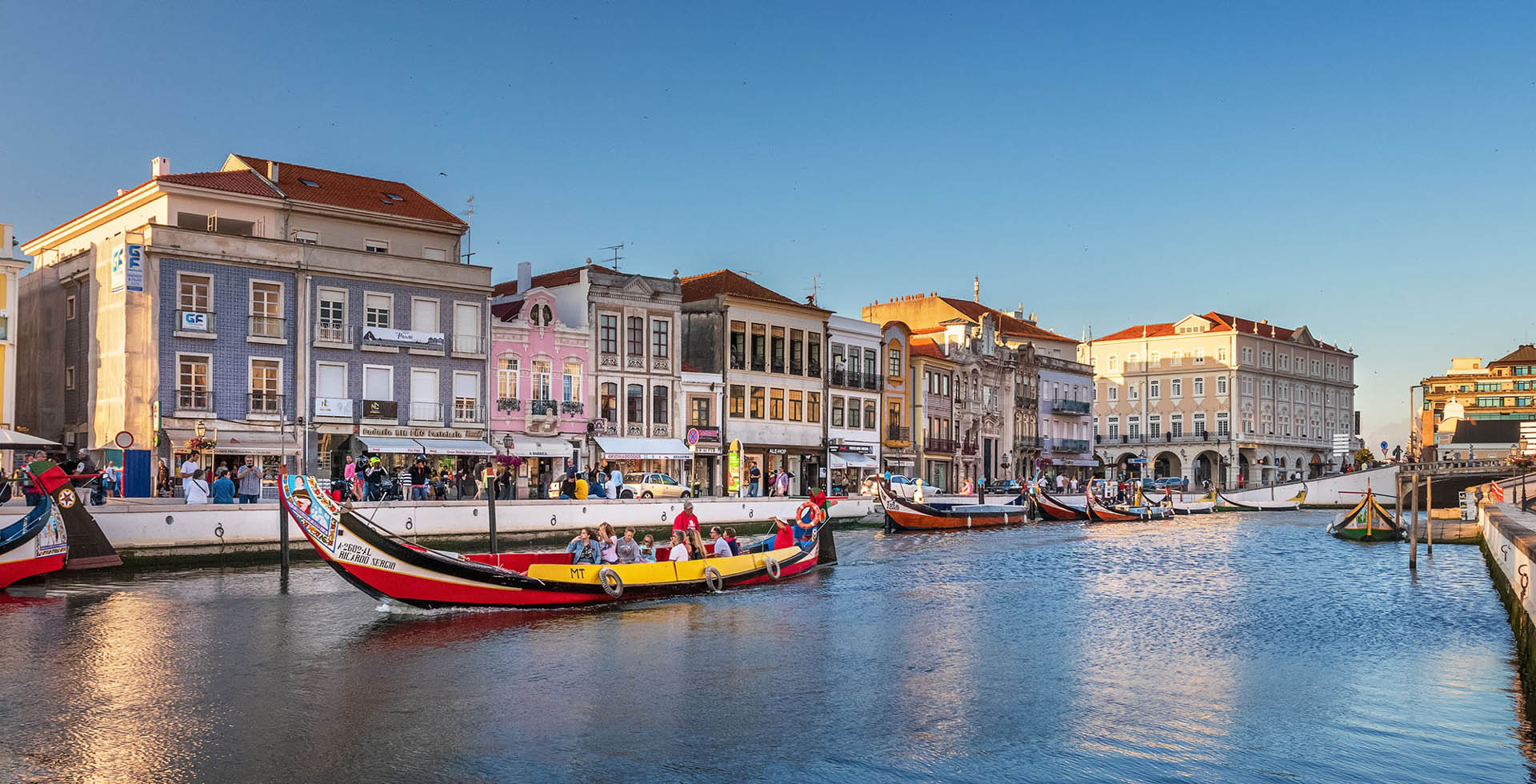
The Portuguese city of Aveiro has been a popular staycation destination for generations. It’s often referred to as ‘the Venice of Portugal’, thanks to its canals and inland waterways, its eye-catching Art Nouveau architecture and the laid-back pace of Aveiro life.
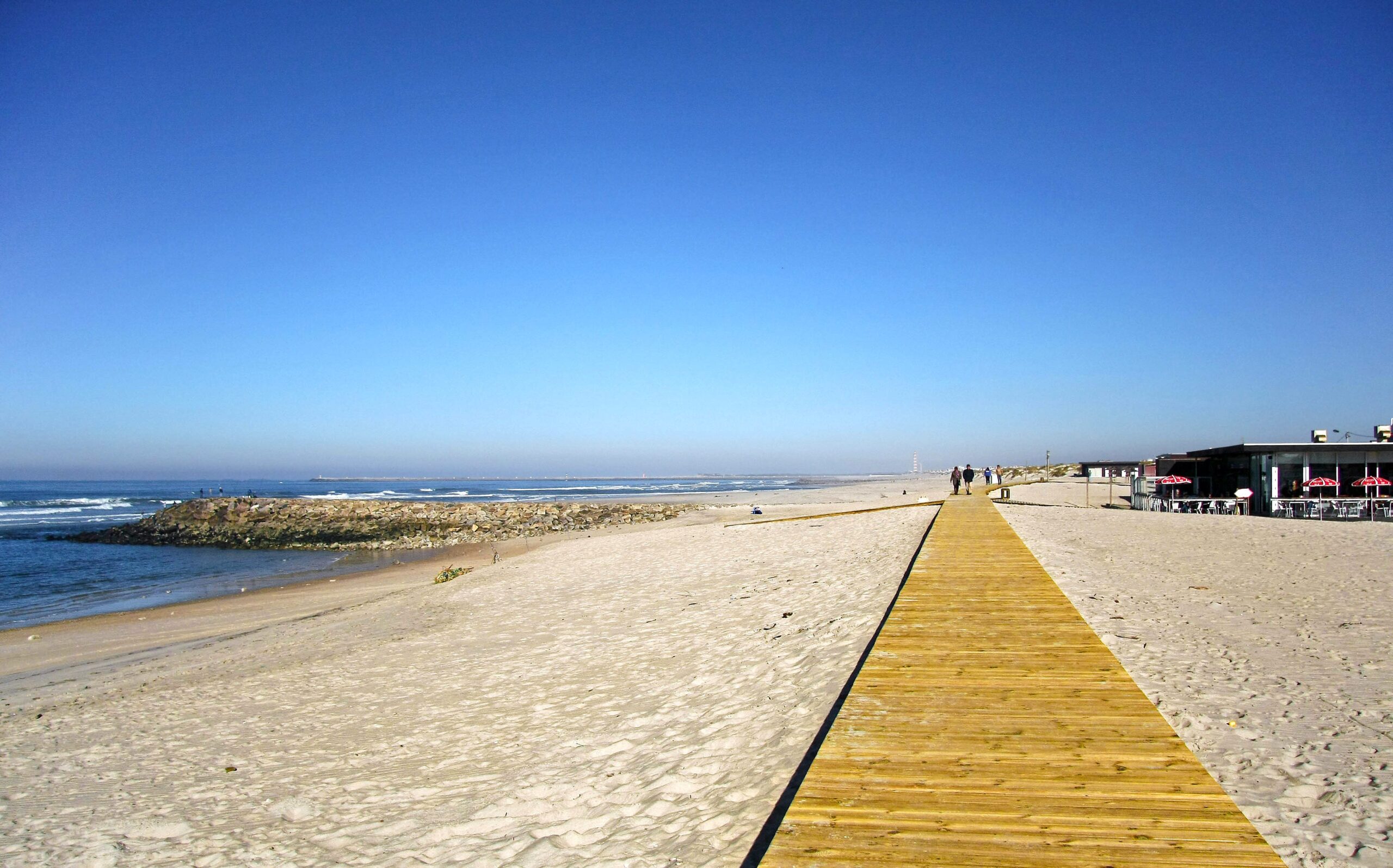
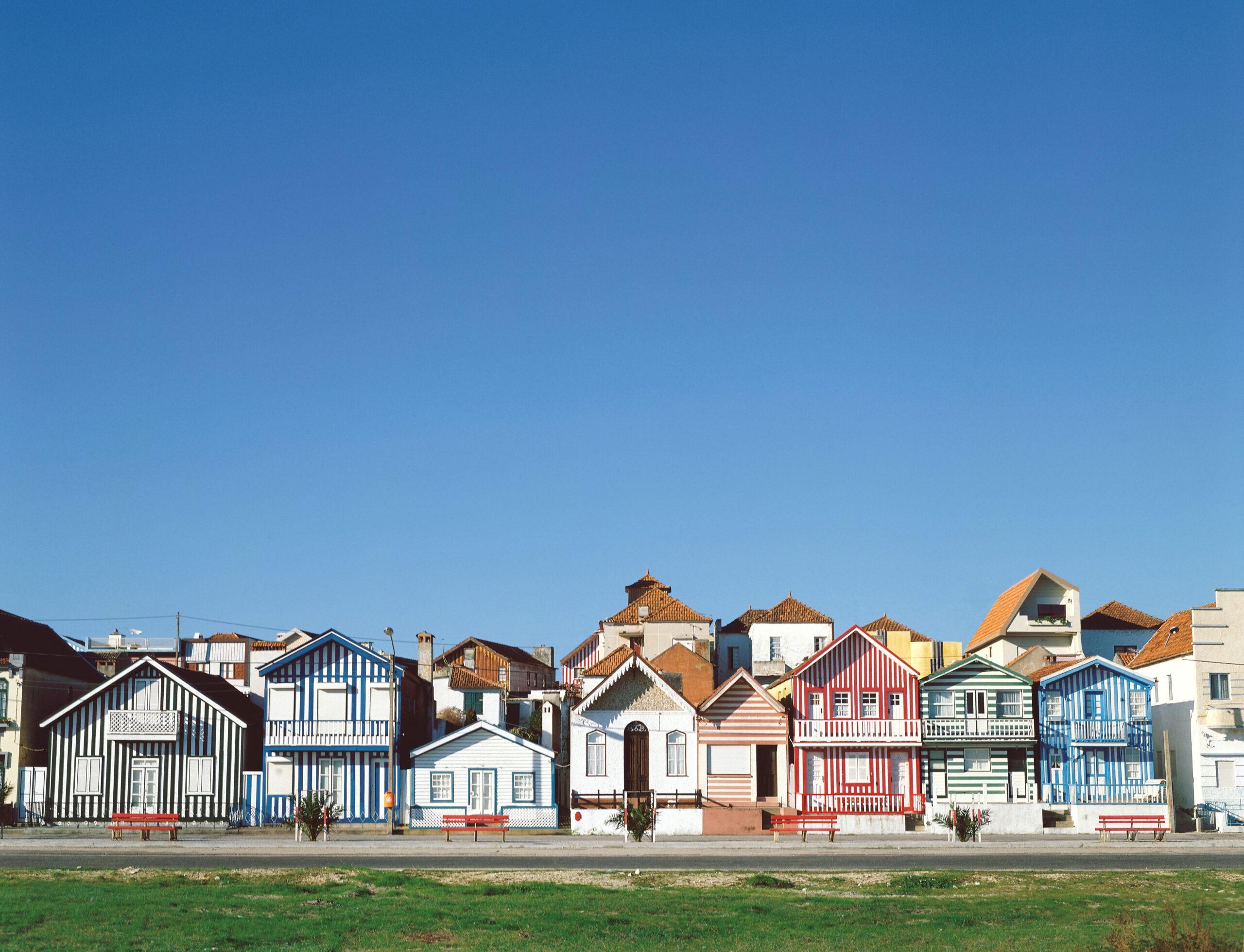
Sitting on the Ria de Aveiro seawater lagoon, the city’s cuisine has always been tied to the seasonal ebb and flow of the sea and the catches of the local Moliceiros fishermen. The lagoon is a protected nature reserve, home to storks, herons and flamingos – the beachfront town of Praia Costa Nova sits at its western mouth and is famous throughout Portugal for its charming candy-striped houses.
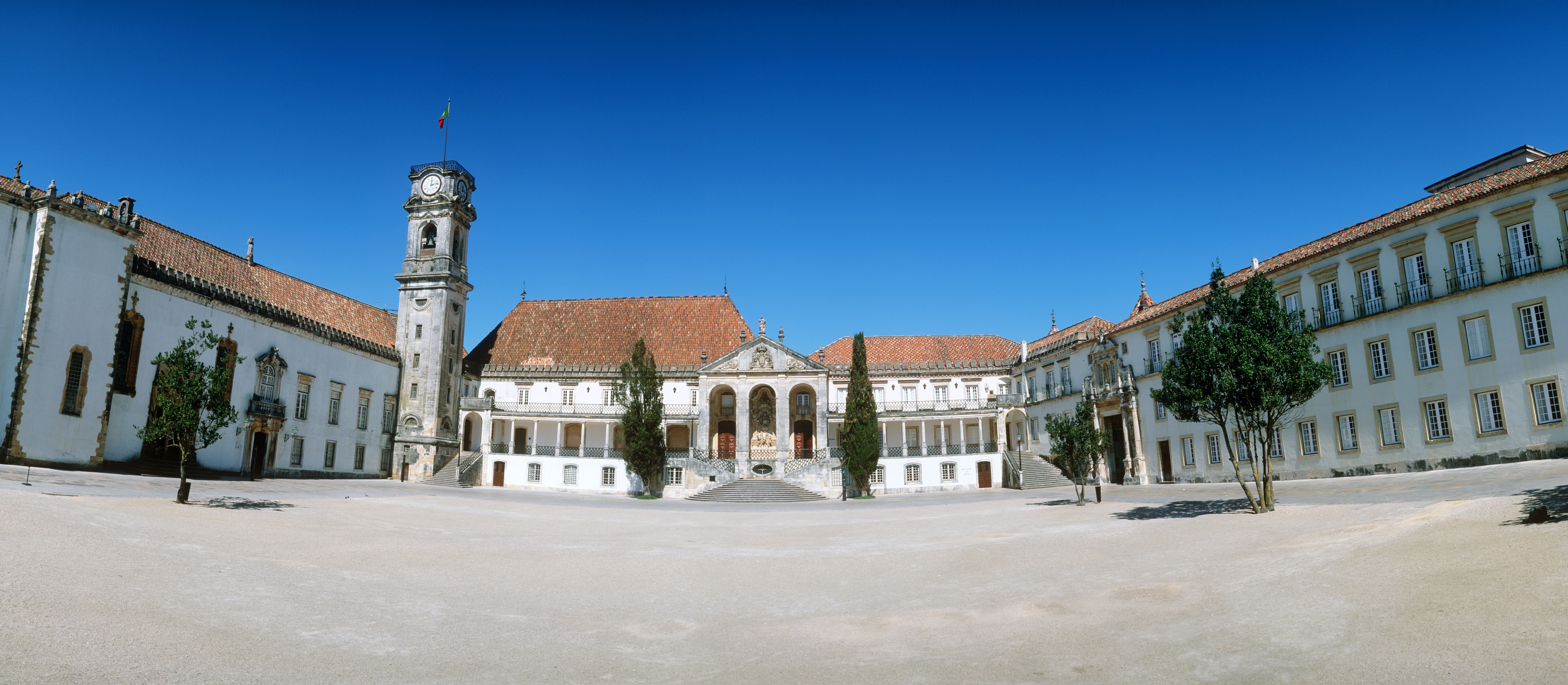
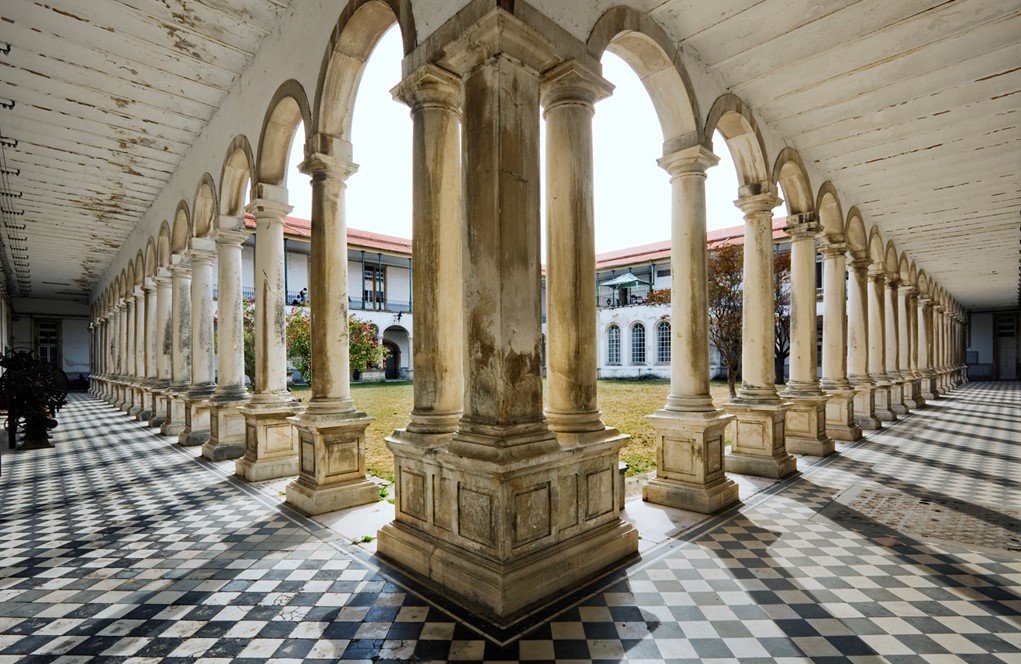
Leaving Aveiro, you’ll drive south to the royal city of Coimbra: the birthplace of the Kings of Avis. Home to Portugal’s oldest academic institution, Coimbra’s medieval and Manueline architecture is UNESCO-protected: the Biblioteca Joanina, the Capelo de Sao Miguel and the impressive Via Latina are amongst the country’s most-precious national treasures.
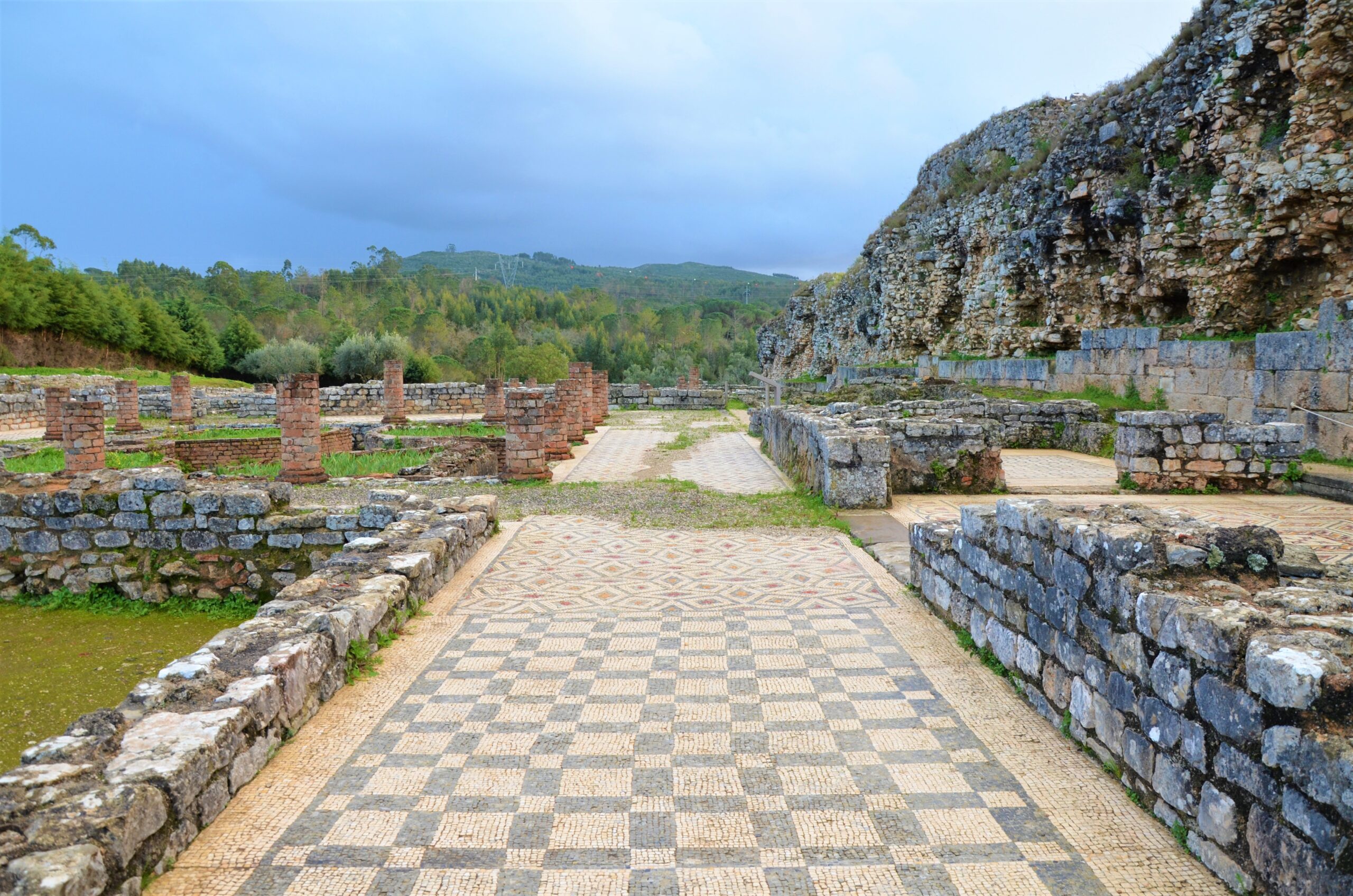
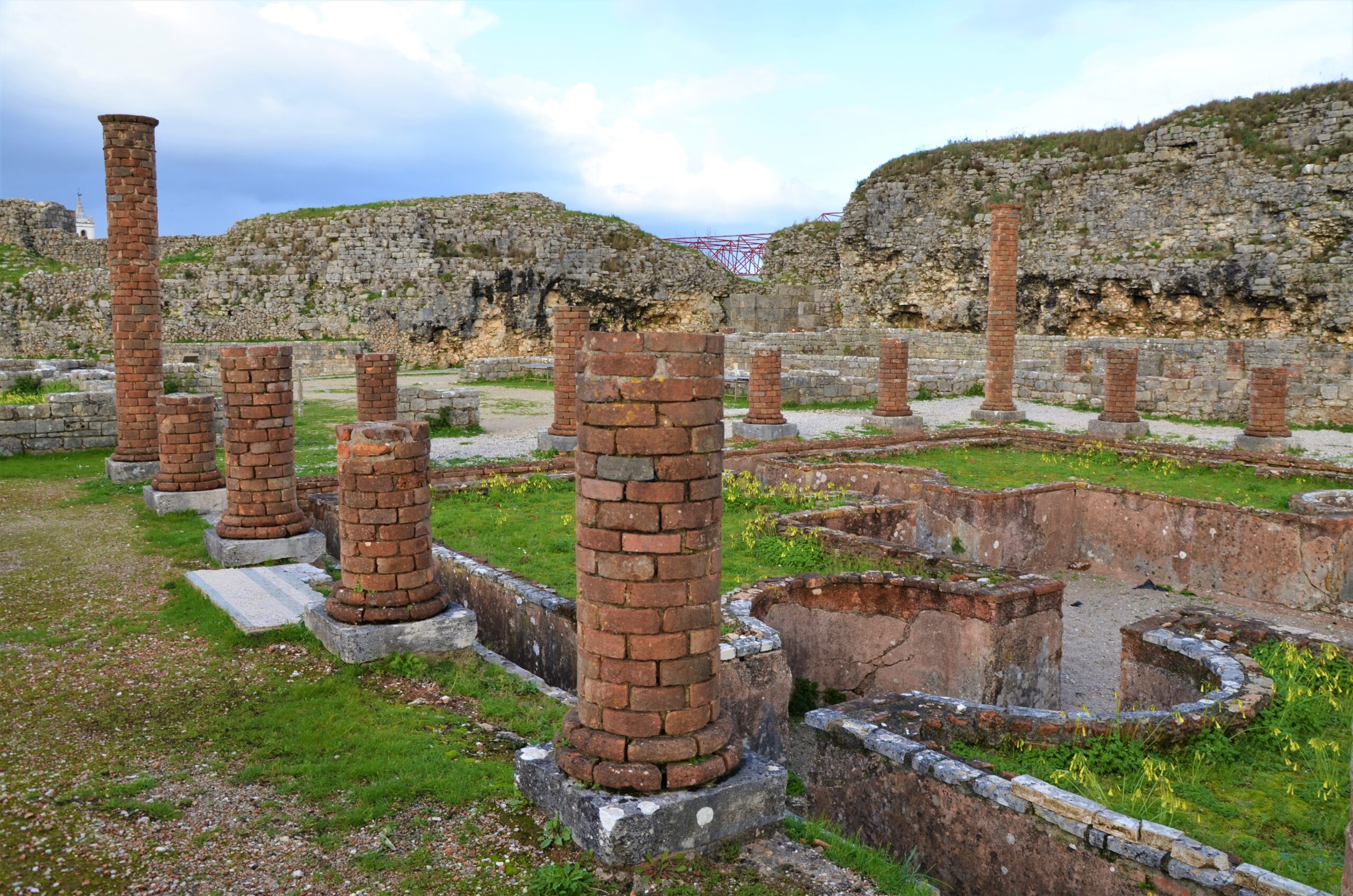
You’ll also visit Coimbra’s namesake: the 1st century Roman city of Conimbriga. At its peak, the city had an estimated population of 10,000 – the Museu Monografico de Conimbriga preserves the remarkable archaeology which has been unearthed at the site, and he sculptures, coins and jewellery of the Conimbriga’s high-status residents sit side-by-side with the domestic household items of everyday Roman life.
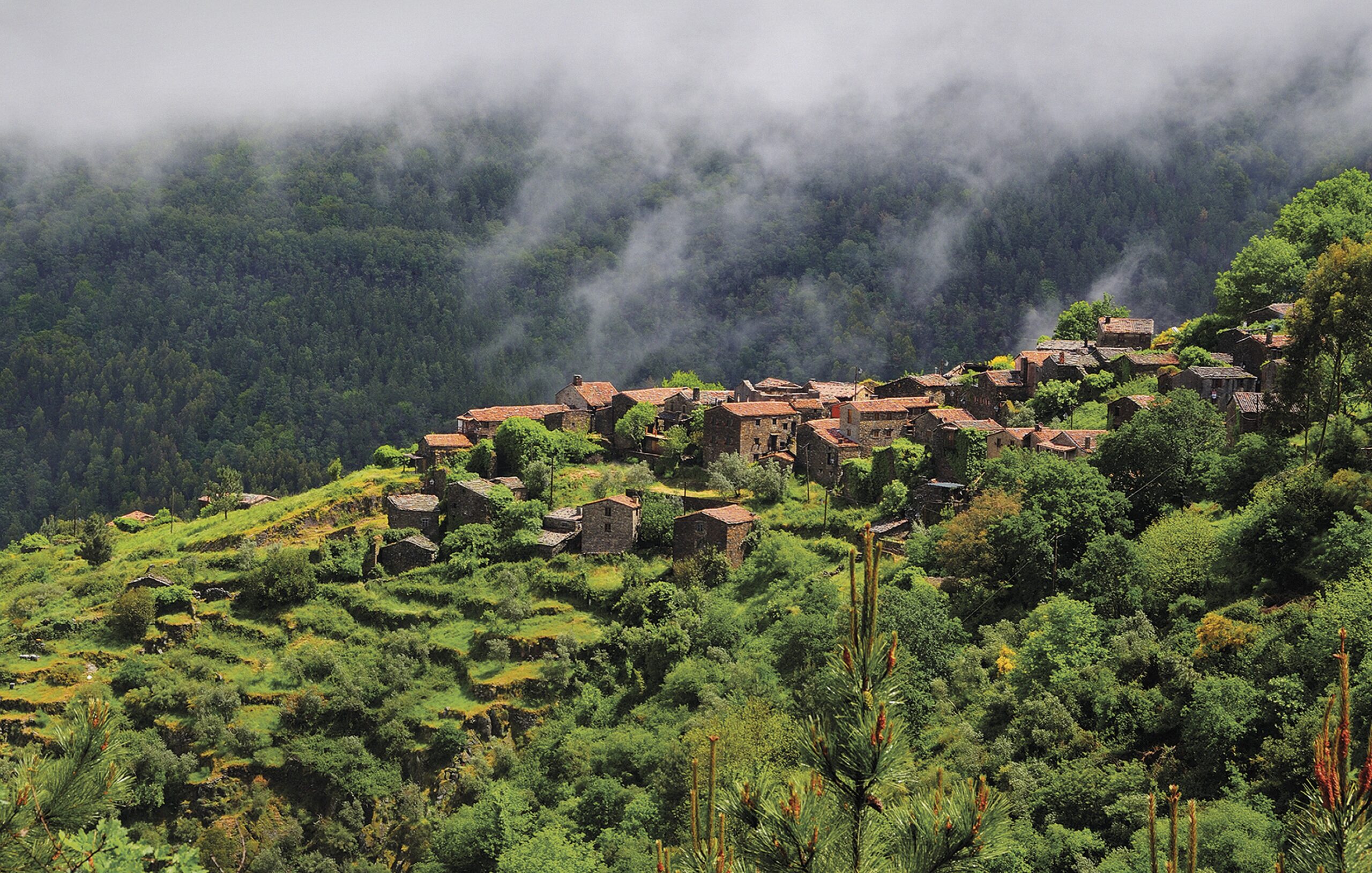
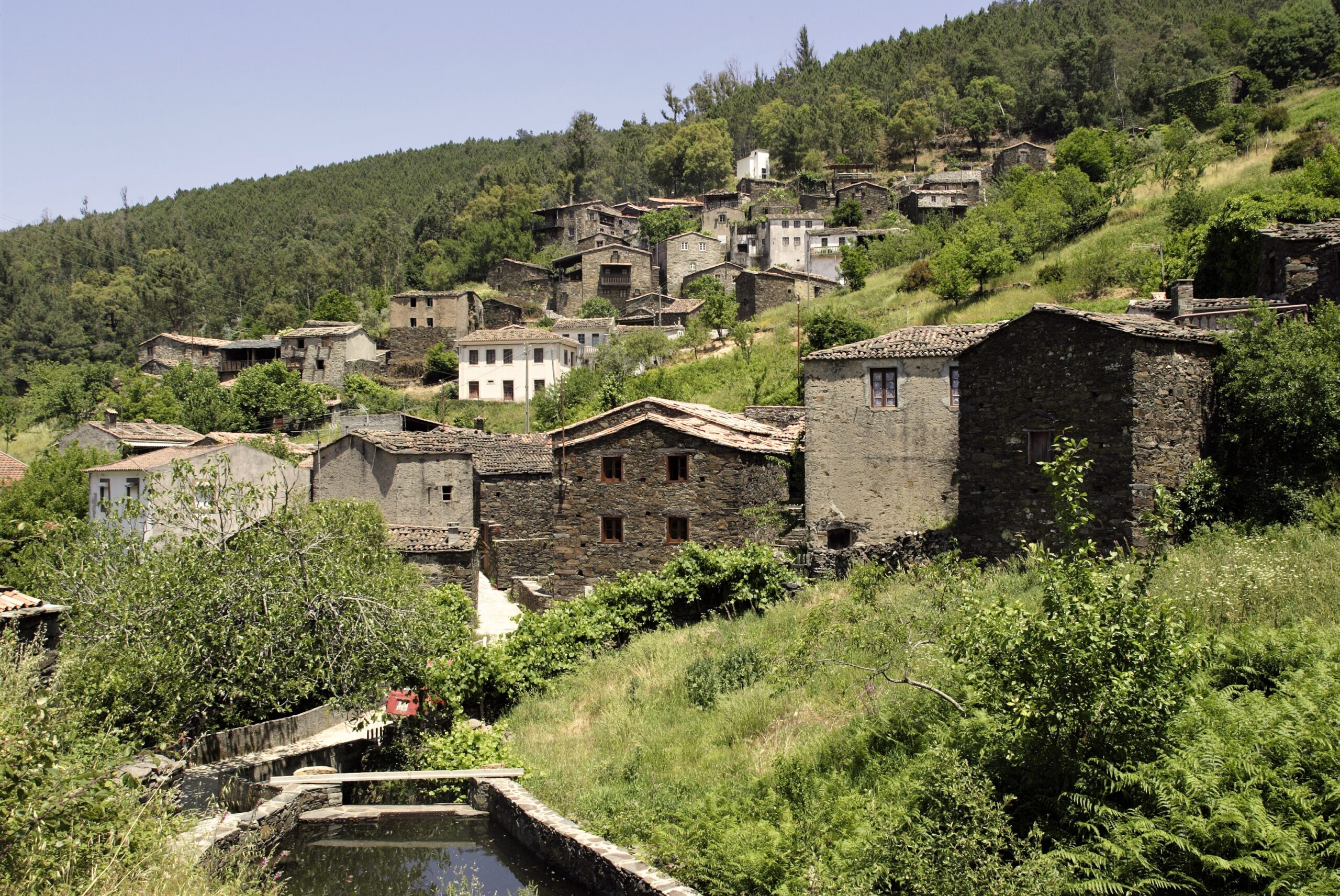
From Conimbriga, you’ll head into secluded hills of the Serra da Lousa. Time stands still in these remote Aldeias do Xista – ‘Schist Villages’ where long-held traditions are cherished: in the local architecture, its art and handicrafts, and in its cuisine.
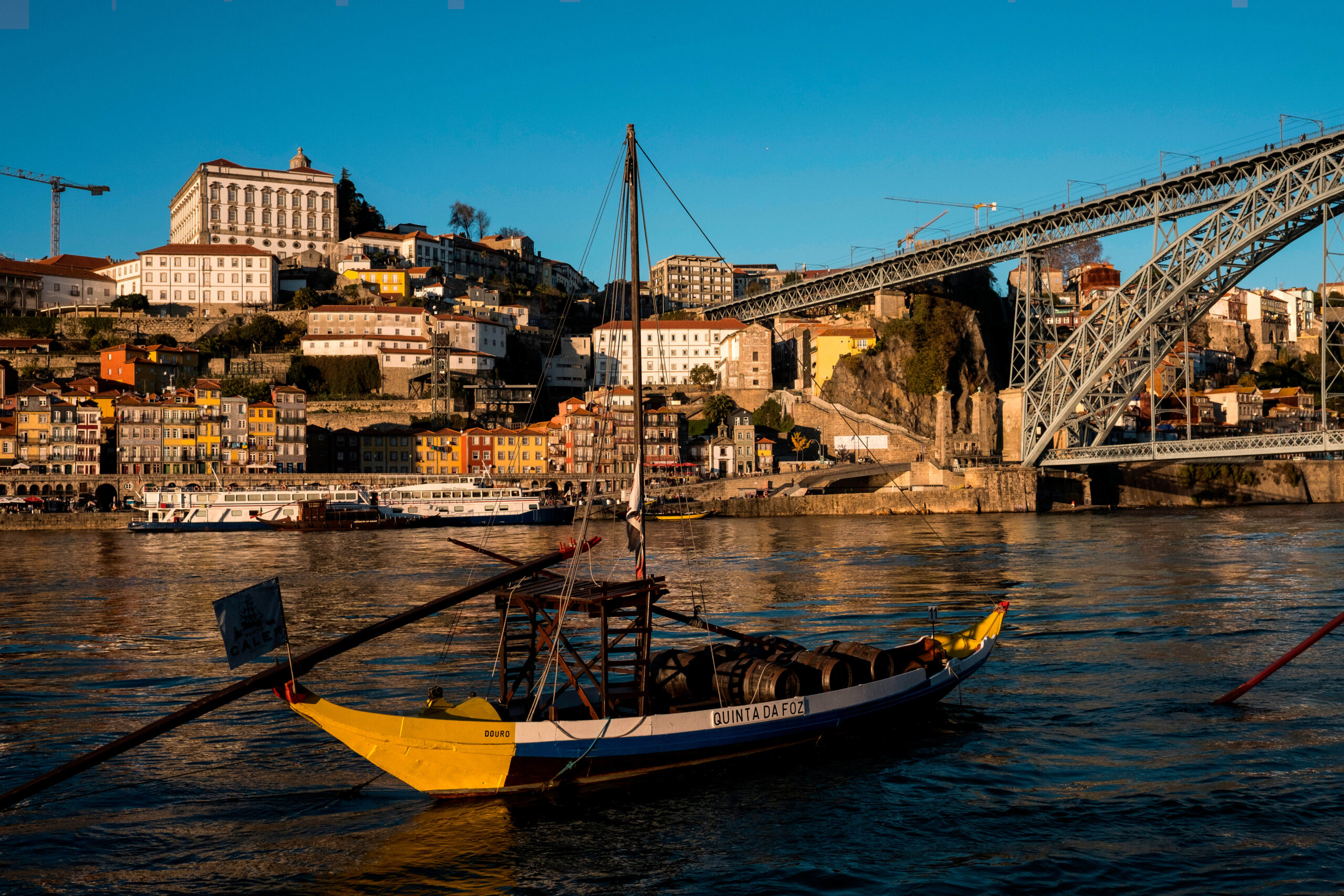
You’ll end your holiday with an overnight stay in the northern city of Porto, your closest connection by air, and it’s easy for us to add a few nights to your trip if you’d like to explore this exciting and dynamic city.
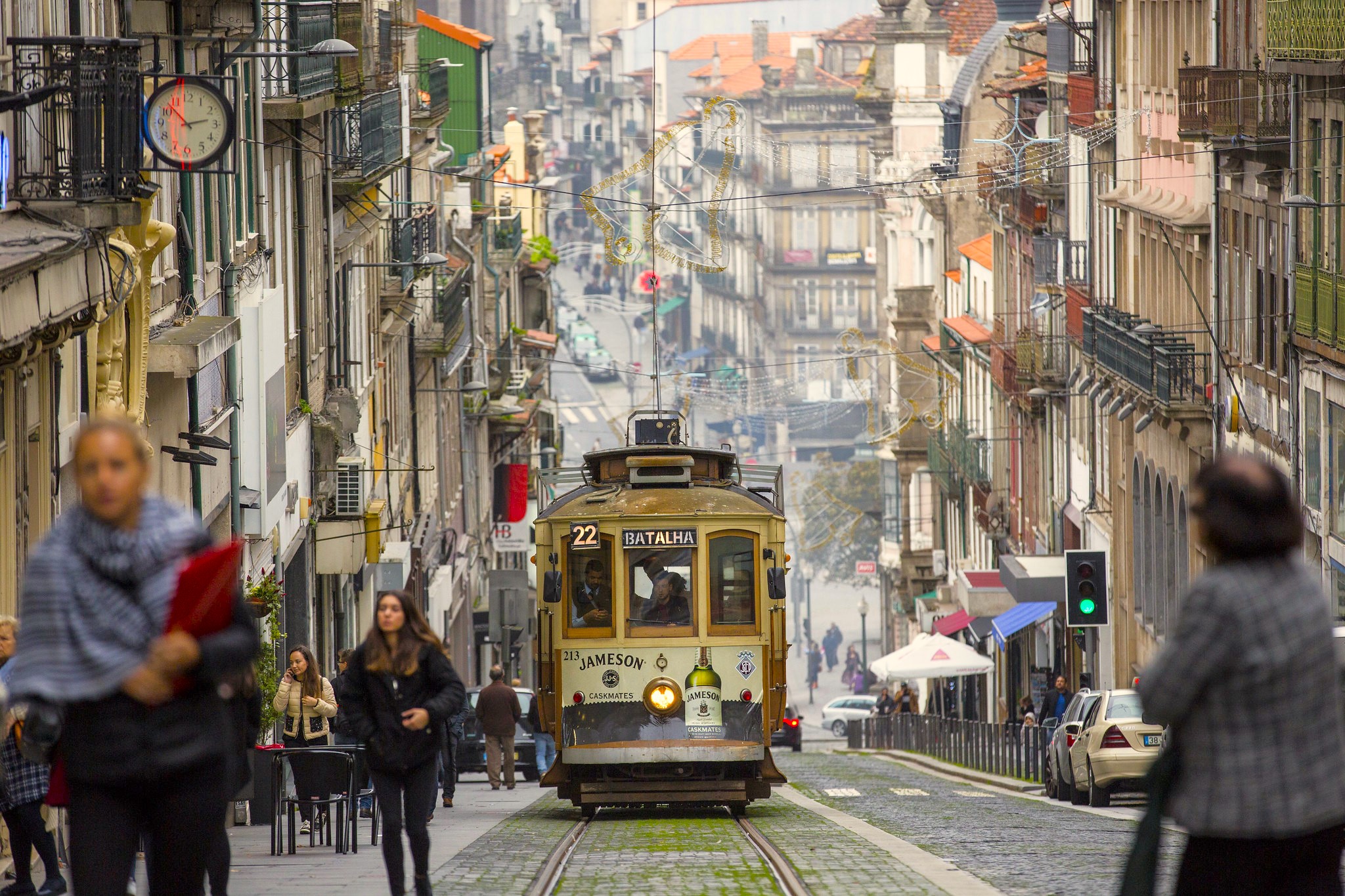
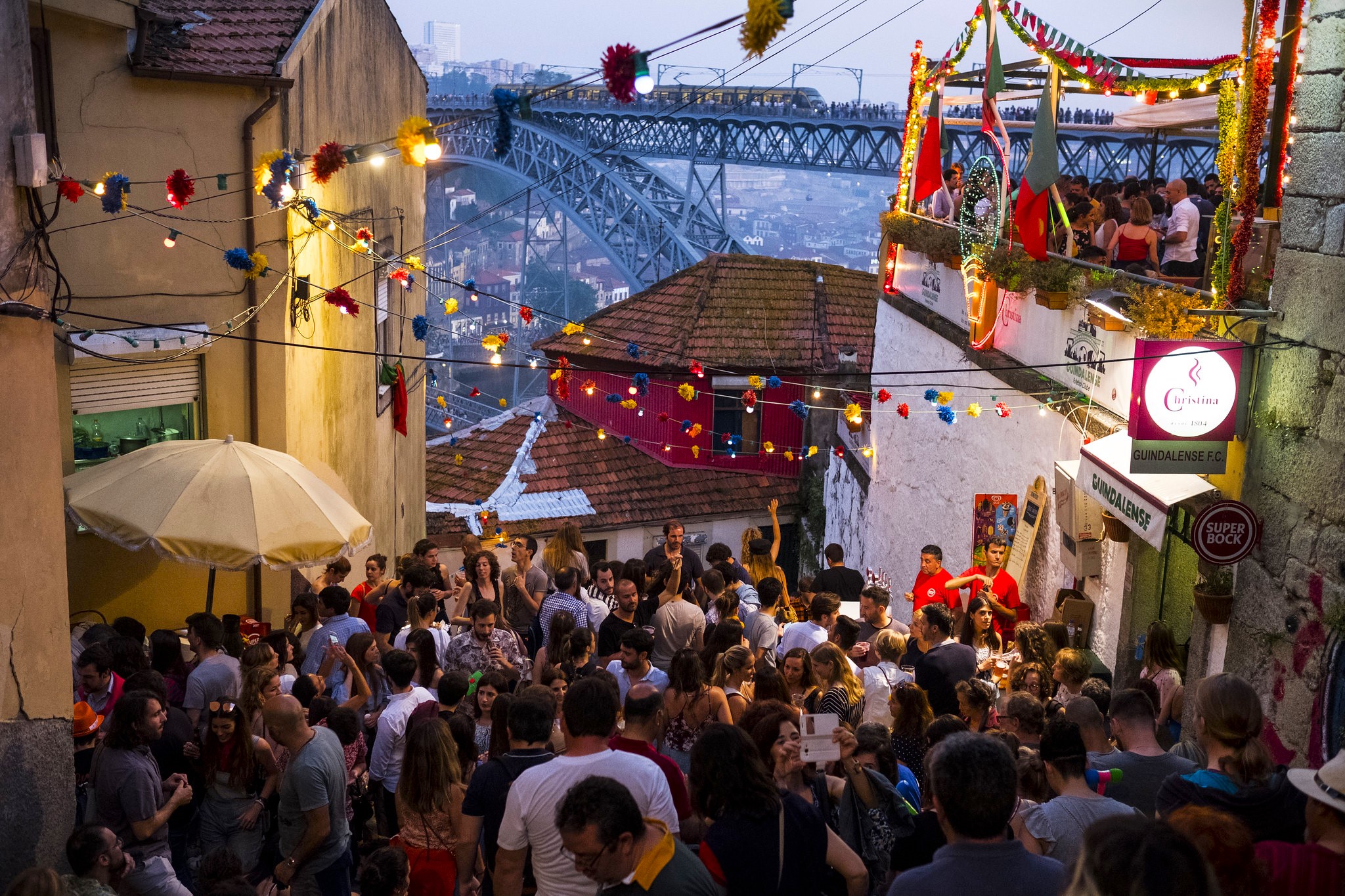
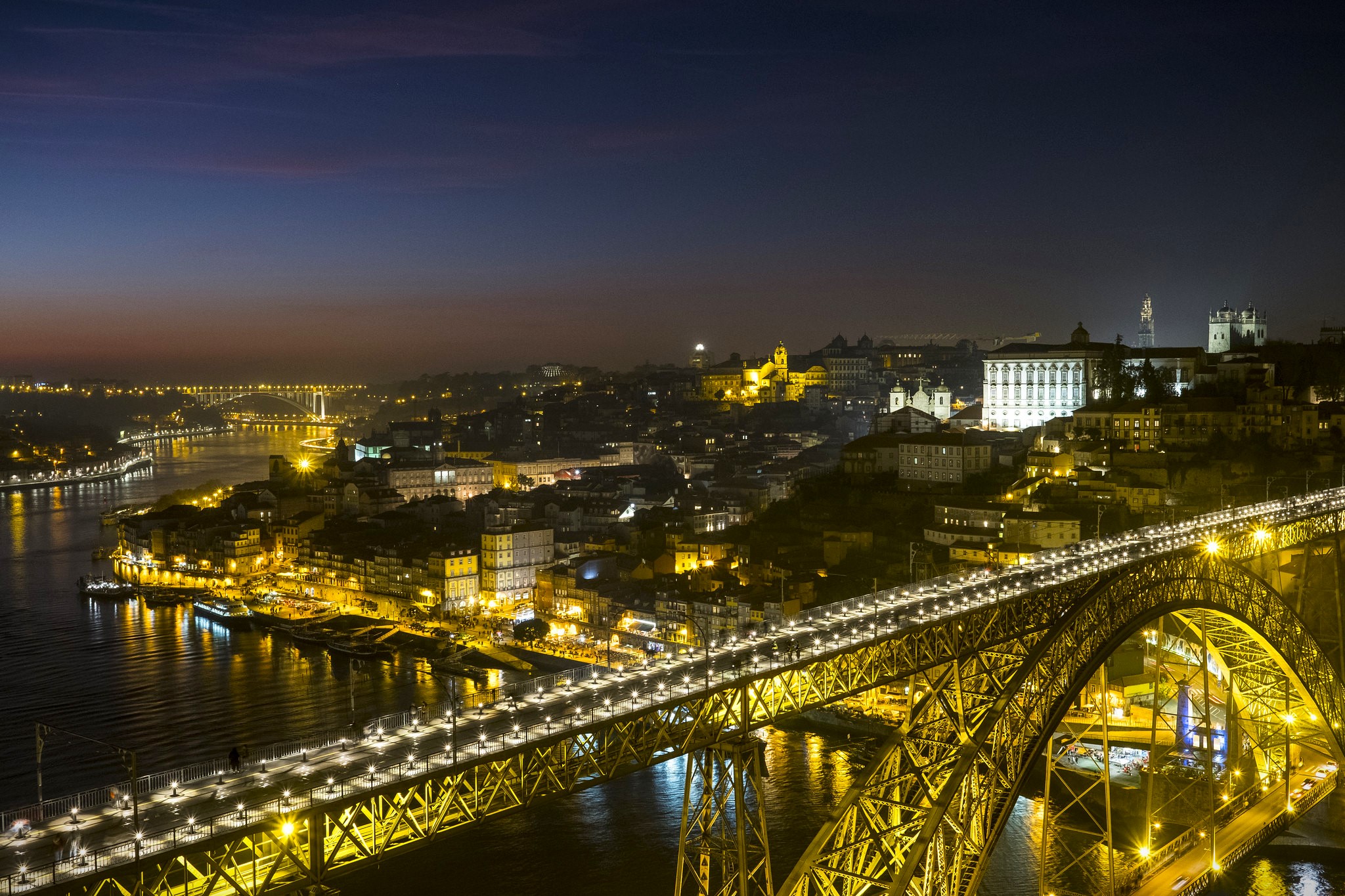
Day 1
You’ll begin your holiday with a flight direct flight to Porto. You’ll be collected on arrival by our driver for the drive south to your accommodation at the 1887 Estrela Palace in Aveiro.
Day 2
You’ll explore Aveiro on foot and by boat, with a moliceiro boat trip along the central canal.
Day 3
You might like to walk Passadicos trail through the Ria de Aveiro nature reserve, or you can head west to Praia Costa Nova beach – famous for its pristine sands and candy-striped palheiros beach front houses.
Day 4
You’ll collect your hire car, before driving south for a three-night stay at Quinta das Lagrimas in Coimbra.
Day 5
You’ll explore Coimbra on foot, with visits to the Mosteiro de Santa Clara-a-Velha, the Fado Centre, Se Velha Cathedral, the Museu Nacional Machado de Castro, and the Paco das Escolas – home to the famous Biblioteca Joanina.
Day 6
You’ll visit one of Portugal’s most important archaeological sites, the Roman ruins at Conimbriga, followed by a drive into the Serra da Lousa mountain range, famous throughout Portugal for its Aldeias do Xisto or Schist Villages.
Day 7
You’ll leave Coimbra today, driving north for an overnight stay at the Descobertas Boutique Hotel in Porto.
Day 8
You’ll be transferred to the airport for your flight home.
City Tours
A guided tour can be an incredibly useful introduction the layout, cuisine and culture of an unfamiliar city. Our friendly and engaging guides bring the country’s long history to life, whilst giving you an insight into daily life in modern-day Portugal.
Tours often provide you with a list of new sights to see, restaurant recommendations, and an invaluable insight into the dos and don’ts of Portuguese etiquette. You’re also supporting the local economy, local businesses, museums and galleries, and your money helps to preserve many of Portugal’s most-historic buildings.
Hiking
Portugal’s wonderfully diverse range of landscapes make it the ideal destination for hiking holidays. The granite mountains of the Serra da Estrela are Portugal’s highest range (peaking at 1993 metres), and its high plateaus and deep river valleys are home to over 400km of waymarked trails and a wealth of wildlife: boars, otters, golden eagles, peregrine falcons and the elusive Iberian wolf.
Moving south, the Aldeias do Xisto Schist Villages are a collection of timeless, fairy tale hamlets spread across the peaks of Lousa, Acor and Muradal. Centuries of Portuguese history and tradition are preserved in the region’s hearty cuisine and its convivial B&Bs.
The jewel in the crown of Portugal’s walking network is the Rota Vicentina. This cross-region trail network was created in 2012 to help boost the local economies of southern Alentejo and the Algarve – its routes are easily adaptable according to the distance and type of hikes you enjoy, traversing remote cliffs and obscure beaches, with the wild Atlantic Ocean as a backdrop.
Food and Wine
Portuguese cuisine has experienced something of a renaissance in recent times. Once sidelined in favour of more well-known dishes from neighbouring Spain, Portugal’s locally sourced produce and regional wines have moved out of their Iberian neighbour’s shadow to take their rightful seat at the top table of European cuisine.
The capital Lisbon is where many of the country’s long-held culinary traditions are being challenged by a new generation of chefs, whose exciting and imaginative reinventions of classics such as caldo verde, ameijoas a bulhao pato and bolinhos de bacalhau are allowing the best of the country’s sensational produce to shine. Iberian pork is much-coveted, particularly in the Central and Alentejo regions whose farming heritage give its cuisine rustic, hearty slant. Its organic credentials are impeccable: roaming ancient cork forests and subsisting on a diet of acorns which impart a strong, nutty flavour to the meat.
As the western outpost of mainland Europe and with over 900km of coastline, seafood is the backbone of the country’s cuisine. Grilled sardines (sardinhas assadas) are deeply embedded in Portuguese culture and are often central to many religious celebrations, particularly around the Tejo River basin.
There are also thirty-one Denominacao de Origem Controlada regions across the country, producing over two-hundred varieties of wine. Dao, Estremadura, Bairrada, Portimao, Tavira – Portuguese vineyards are low yield and exports don’t compare to France or Italy, and to truly enjoy these wines, you have to be in Portugal.
Guided Tours
Taking on a whole new region of Portugal can be a daunting prospect: studying guidebooks and maps, researching must-see sites and trying to miss those lesser-known hidden gems. Our tours remove the stress of planning and optimise your time, without you feeling rushed or hurried. Our guides will always have a plan, but we prefer private, flexible tours where you’re not tied to a strict timetable.
If you’d like to get your hands dirty in Tras-os-Montes vineyards, with time to savour a glass of local Vino Verde, so be it. If you want to combine out-of-the-way family-run vineyards with the timeless grandeur of medieval Marvao, let us make the arrangements.
Our guides are a treasure trove of local knowledge, and their in-depth insight and passion will unveil Portugal’s extraordinary history, culture and cuisine.
Cycling
From the ancient vineyards of the Douro valley, via the windswept Alentejo plains and down to the seaside towns of the Algarve. The beauty of exploring Portugal on two wheels is in its slowness – unhurried travel allows you to immerse yourself in your surroundings and to explore the country’s rich cultural heritage and unique traditions.
Whether you’re looking for a self-guided, point-to-point cycle touring holiday, a couple of guided road rides during your family holiday, or if you prefer to be off-road, riding natural and man-made singletrack – whatever your preference, we have the bikes, routes and rides to suit all abilities.
Kayaking, SUPs and Surfing
Portugal offers an exciting range of water sports to suit every adventurer: from paddleboarding, kayaking and canoeing, to world-class surfing, kitesurfing and windsurfing,
Northern Portugal is home to many of the best spots for inland water sports – kayaking, canoeing and canyoning are popular thanks to an abundance of lakes, lagoons and waterfalls, and the UNESCO-protected Arouca Geopark is considered one of the best locations in the country for white water rafting. For a more tranquil experience, the calm waters of the Castelo de Bode reservoir are ideal for paddle-boarding, whilst the Aguieira reservoir is a popular destination for sailing and fresh-water fishing.
For would-be adrenalin junkies, the surf schools at Espinho are perfect for surfing newbies. If you’re a seasoned pro, Nazare and Peniche are blessed with year-around consistent swells and a vibrant surf culture. With its exposed location on the far southwestern tip of the Algarve, Sagres has been a mecca for water sports enthusiasts for over fifty years. Its energetic waves and laid-back atmosphere attract old-school surfers and kiteboarders from across the world.
Discover Central Portugal’s lesser-known gems on our Aveiro, Canals and Coimbra holiday.

The Portuguese city of Aveiro has been a popular staycation destination for generations. It’s often referred to as ‘the Venice of Portugal’, thanks to its canals and inland waterways, its eye-catching Art Nouveau architecture and the laid-back pace of Aveiro life.


Sitting on the Ria de Aveiro seawater lagoon, the city’s cuisine has always been tied to the seasonal ebb and flow of the sea and the catches of the local Moliceiros fishermen. The lagoon is a protected nature reserve, home to storks, herons and flamingos – the beachfront town of Praia Costa Nova sits at its western mouth and is famous throughout Portugal for its charming candy-striped houses.


Leaving Aveiro, you’ll drive south to the royal city of Coimbra: the birthplace of the Kings of Avis. Home to Portugal’s oldest academic institution, Coimbra’s medieval and Manueline architecture is UNESCO-protected: the Biblioteca Joanina, the Capelo de Sao Miguel and the impressive Via Latina are amongst the country’s most-precious national treasures.


You’ll also visit Coimbra’s namesake: the 1st century Roman city of Conimbriga. At its peak, the city had an estimated population of 10,000 – the Museu Monografico de Conimbriga preserves the remarkable archaeology which has been unearthed at the site, and he sculptures, coins and jewellery of the Conimbriga’s high-status residents sit side-by-side with the domestic household items of everyday Roman life.


From Conimbriga, you’ll head into secluded hills of the Serra da Lousa. Time stands still in these remote Aldeias do Xista – ‘Schist Villages’ where long-held traditions are cherished: in the local architecture, its art and handicrafts, and in its cuisine.

You’ll end your holiday with an overnight stay in the northern city of Porto, your closest connection by air, and it’s easy for us to add a few nights to your trip if you’d like to explore this exciting and dynamic city.



Day 1
You’ll begin your holiday with a flight direct flight to Porto. You’ll be collected on arrival by our driver for the drive south to your accommodation at the 1887 Estrela Palace in Aveiro.
Day 2
You’ll explore Aveiro on foot and by boat, with a moliceiro boat trip along the central canal.
Day 3
You might like to walk Passadicos trail through the Ria de Aveiro nature reserve, or you can head west to Praia Costa Nova beach – famous for its pristine sands and candy-striped palheiros beach front houses.
Day 4
You’ll collect your hire car, before driving south for a three-night stay at Quinta das Lagrimas in Coimbra.
Day 5
You’ll explore Coimbra on foot, with visits to the Mosteiro de Santa Clara-a-Velha, the Fado Centre, Se Velha Cathedral, the Museu Nacional Machado de Castro, and the Paco das Escolas – home to the famous Biblioteca Joanina.
Day 6
You’ll visit one of Portugal’s most important archaeological sites, the Roman ruins at Conimbriga, followed by a drive into the Serra da Lousa mountain range, famous throughout Portugal for its Aldeias do Xisto or Schist Villages.
Day 7
You’ll leave Coimbra today, driving north for an overnight stay at the Descobertas Boutique Hotel in Porto.
Day 8
You’ll be transferred to the airport for your flight home.
City Tours
A guided tour can be an incredibly useful introduction the layout, cuisine and culture of an unfamiliar city. Our friendly and engaging guides bring the country’s long history to life, whilst giving you an insight into daily life in modern-day Portugal.
Tours often provide you with a list of new sights to see, restaurant recommendations, and an invaluable insight into the dos and don’ts of Portuguese etiquette. You’re also supporting the local economy, local businesses, museums and galleries, and your money helps to preserve many of Portugal’s most-historic buildings.
Hiking
Portugal’s wonderfully diverse range of landscapes make it the ideal destination for hiking holidays. The granite mountains of the Serra da Estrela are Portugal’s highest range (peaking at 1993 metres), and its high plateaus and deep river valleys are home to over 400km of waymarked trails and a wealth of wildlife: boars, otters, golden eagles, peregrine falcons and the elusive Iberian wolf.
Moving south, the Aldeias do Xisto Schist Villages are a collection of timeless, fairy tale hamlets spread across the peaks of Lousa, Acor and Muradal. Centuries of Portuguese history and tradition are preserved in the region’s hearty cuisine and its convivial B&Bs.
The jewel in the crown of Portugal’s walking network is the Rota Vicentina. This cross-region trail network was created in 2012 to help boost the local economies of southern Alentejo and the Algarve – its routes are easily adaptable according to the distance and type of hikes you enjoy, traversing remote cliffs and obscure beaches, with the wild Atlantic Ocean as a backdrop.
Food and Wine
Portuguese cuisine has experienced something of a renaissance in recent times. Once sidelined in favour of more well-known dishes from neighbouring Spain, Portugal’s locally sourced produce and regional wines have moved out of their Iberian neighbour’s shadow to take their rightful seat at the top table of European cuisine.
The capital Lisbon is where many of the country’s long-held culinary traditions are being challenged by a new generation of chefs, whose exciting and imaginative reinventions of classics such as caldo verde, ameijoas a bulhao pato and bolinhos de bacalhau are allowing the best of the country’s sensational produce to shine. Iberian pork is much-coveted, particularly in the Central and Alentejo regions whose farming heritage give its cuisine rustic, hearty slant. Its organic credentials are impeccable: roaming ancient cork forests and subsisting on a diet of acorns which impart a strong, nutty flavour to the meat.
As the western outpost of mainland Europe and with over 900km of coastline, seafood is the backbone of the country’s cuisine. Grilled sardines (sardinhas assadas) are deeply embedded in Portuguese culture and are often central to many religious celebrations, particularly around the Tejo River basin.
There are also thirty-one Denominacao de Origem Controlada regions across the country, producing over two-hundred varieties of wine. Dao, Estremadura, Bairrada, Portimao, Tavira – Portuguese vineyards are low yield and exports don’t compare to France or Italy, and to truly enjoy these wines, you have to be in Portugal.
Guided Tours
Taking on a whole new region of Portugal can be a daunting prospect: studying guidebooks and maps, researching must-see sites and trying to miss those lesser-known hidden gems. Our tours remove the stress of planning and optimise your time, without you feeling rushed or hurried. Our guides will always have a plan, but we prefer private, flexible tours where you’re not tied to a strict timetable.
If you’d like to get your hands dirty in Tras-os-Montes vineyards, with time to savour a glass of local Vino Verde, so be it. If you want to combine out-of-the-way family-run vineyards with the timeless grandeur of medieval Marvao, let us make the arrangements.
Our guides are a treasure trove of local knowledge, and their in-depth insight and passion will unveil Portugal’s extraordinary history, culture and cuisine.
Cycling
From the ancient vineyards of the Douro valley, via the windswept Alentejo plains and down to the seaside towns of the Algarve. The beauty of exploring Portugal on two wheels is in its slowness – unhurried travel allows you to immerse yourself in your surroundings and to explore the country’s rich cultural heritage and unique traditions.
Whether you’re looking for a self-guided, point-to-point cycle touring holiday, a couple of guided road rides during your family holiday, or if you prefer to be off-road, riding natural and man-made singletrack – whatever your preference, we have the bikes, routes and rides to suit all abilities.
Kayaking, SUPs and Surfing
Portugal offers an exciting range of water sports to suit every adventurer: from paddleboarding, kayaking and canoeing, to world-class surfing, kitesurfing and windsurfing,
Northern Portugal is home to many of the best spots for inland water sports – kayaking, canoeing and canyoning are popular thanks to an abundance of lakes, lagoons and waterfalls, and the UNESCO-protected Arouca Geopark is considered one of the best locations in the country for white water rafting. For a more tranquil experience, the calm waters of the Castelo de Bode reservoir are ideal for paddle-boarding, whilst the Aguieira reservoir is a popular destination for sailing and fresh-water fishing.
For would-be adrenalin junkies, the surf schools at Espinho are perfect for surfing newbies. If you’re a seasoned pro, Nazare and Peniche are blessed with year-around consistent swells and a vibrant surf culture. With its exposed location on the far southwestern tip of the Algarve, Sagres has been a mecca for water sports enthusiasts for over fifty years. Its energetic waves and laid-back atmosphere attract old-school surfers and kiteboarders from across the world.

